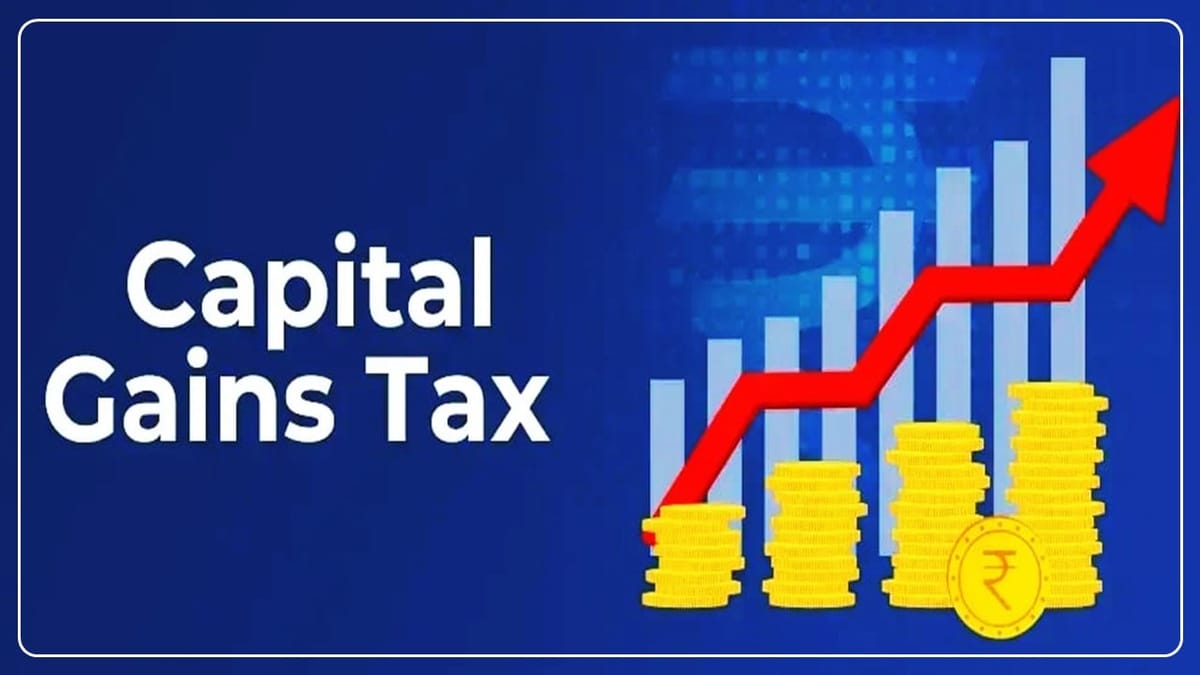Reetu | Jul 29, 2024 |

Budget 2024: Capital Gains Tax Framework Revamped; Know Changes that can Hurt Your Pocket
The Union Budget 2024-25 fundamentally revamped the capital gains tax regime. Certain measures may cause significant harm. Homeowners will no longer receive the indexation benefit when selling their property, but gains on the sale of equities and equity funds will be taxed more heavily. However, the budget includes certain concessions. The exemption level for stock gains has been increased, and a previous anomaly in the taxation of certain non-equity funds has been rectified. Let’s go further to see what this implies for you.
The removal of the indexation benefit from the capital gains tax structure is a major changer. This has been complemented by a reduction in the long-term capital gains (LTCG) tax rate from 20% to 12.5%. This will affect both property owners and gold buyers to differing degrees. Indexation adjusts accrued capital gains for inflation during the holding period, lowering the effective tax incidence in many circumstances.
The Budget removed this offset benefit, thus all gains would be taxed, but at a lower rate of 12.5% rather than 20% previously. The Finance Ministry has emphasized that assets purchased before April 1, 2001, will continue to get the indexation advantage.
Some sellers may have to pay more taxes, but others may be able to pay less.
The impact on you will be totally determined by the length of time you retain the asset and the gains you make. It is stated that if the property’s value has increased more than the inflation rate, the new 12.5% tax rate is expected to be more advantageous for real estate sellers, compared to the previous 20% tax rate after adjusting for indexation.
For Example:
If a property is purchased for Rs.25 lakh in 2003 and sold today for Rs.1.5 crore, the capital gain is Rs.1.25 crore. Under the current standards, the indexed cost of the property would be Rs.86.43 lakh, resulting in taxable capital gains of just Rs.63.57 lakh. At 20%, the seller would be required to pay Rs.12.71 lakh in taxes on these gains. Under the proposed rules, all capital gains of Rs.1.25 crore will be taxed at 12.5%, resulting in a greater tax bill of Rs.15.62 lakh. The vendor will wind up paying Rs.2.9 lakh more in taxes.
Assume a home purchased for Rs.75 lakh in 2018 is sold for Rs.1.5 crore today. The existing regulations would tax the indexed capital gains of Rs.52.76 lakh at a rate of Rs.10.55 lakh. However, under the proposed changes, the seller will pay a reduced tax of Rs.9.37 lakh.
In another surprising step, the Budget proposes raising the tax on both short-term and long-term equity gains. Short-term profits from shares will now be taxed at 20%, up from 15% previously. Meanwhile, long-term gains will face a 12.5% tax rate, up from 10%. This higher tax will reduce the gains from shares and equity-oriented funds. The Budget provided some respite by extending the tax exemption on LTCG from Rs.1 lakh to Rs.1.25 lakh for each financial year.
The budget recommends changing the rates and correcting some earlier inconsistencies in asset taxation.
Clearly, even though the Budget increased capital gains taxes on both long-term and short-term gains, it pushed investors into longer-term holdings and discouraged speculative activity. Following the tax adjustment, the difference between the short-term and long-term capital gains tax rates increased from 5% to 7.5%. Despite the increase in the LTCG tax rate, the broader difference compared to the STCG tax rate and higher exemption make longer-term holdings more appealing to investors. Investors in equities arbitrage funds, who normally hold for less than a year, will feel the impact of the 20% short-term capital gains tax rate increase.
With the accompanying increase in STT on futures and options, the government clearly intends to discourage short-term trading activity.
This will surely affect the profitability of frequent traders. However, we urge investors to look beyond short-term market reactions and consider the long-term benefits of a tax system that encourages patient investing.
The rationalisation of the capital gains tax structure has resulted in tax parity across asset classes. The holding period for listed financial assets is intended to be one year, while for others (unlisted financial assets and all non-financial assets) it will be two years. For example, the holding period for REITs has been shortened from 36 months to 12 months, allowing them to qualify as long-term assets on par with equities. Similarly, the holding time for long-term capital gains in real estate, gold, and international funds is now the same: two years.
Furthermore, long-term capital gains on listed and unlisted equities are planned to be taxed at a uniform rate of 12.5%, eliminating the present differential tax rates of 10% and 20%.
The Budget also corrected an issue in the taxation of gold mutual funds, gold ETFs, fund of funds, and international equity funds. Following the amendment in this year’s Budget, these funds were classified as debt funds for tax purposes, with gains taxed at the slab rate regardless of holding term.
Investors in these assets will now benefit from the new LTCG and pay a 12.5% tax if they hold for longer than 24 months. Meanwhile, mutual funds that previously held 35-65% of their assets in equities and the remainder in debt or other asset classes will no longer profit from indexation. Some investors had switched to funds in categories such as multi-asset funds and balanced hybrid funds merely for tax reasons.
Furthermore, unlisted bonds and debentures, debt mutual funds, and market-linked debentures, regardless of holding time, will be taxed on capital gains at the applicable rates.
In case of any Doubt regarding Membership you can mail us at [email protected]
Join Studycafe's WhatsApp Group or Telegram Channel for Latest Updates on Government Job, Sarkari Naukri, Private Jobs, Income Tax, GST, Companies Act, Judgements and CA, CS, ICWA, and MUCH MORE!"